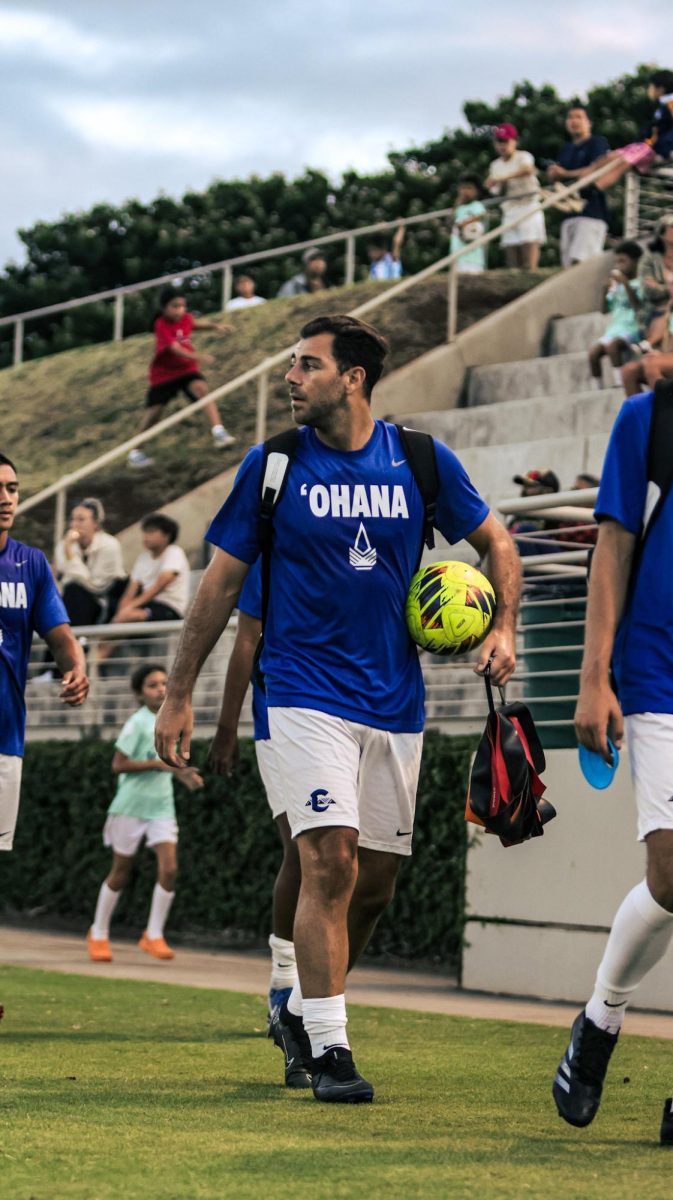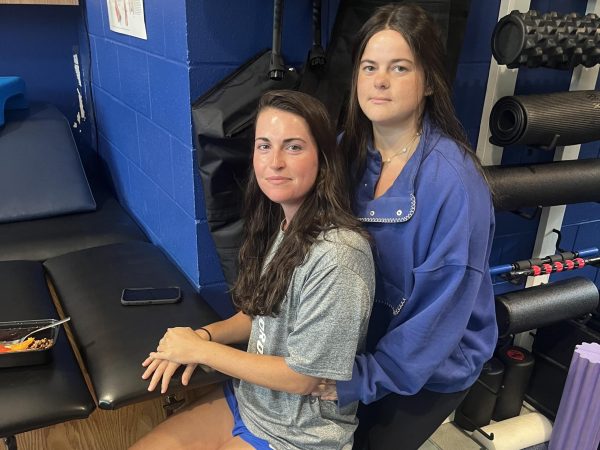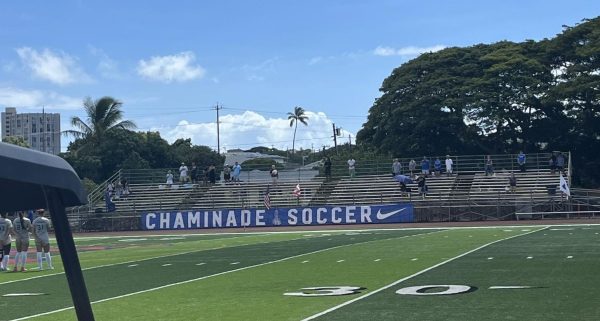Life of a student athlete
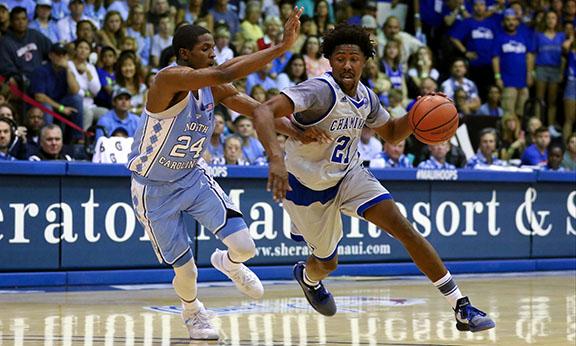
Chaminade’s Rohndell Goodwin makes a move on UNC at last years Maui Invitational.
February 8, 2017
A normal day for a college athlete does not consists of what most preconceived ideas suggest. People in the stands cheering at our games really only get to see the finished product. They get to see what everything that we have worked so hard for, to be playing on the court representing our school and playing the sport we love. But our lives are quite different than those who just attend college for a degree. The average day for an athlete tends to be a lot more hectic than anyone could imagine.
You wake up to the sound of a shrieking alarm, no need to worry about the bright light in your eyes because the sun isn’t even up yet. It’s 6:30 a.m. There is no chef cooking you a gourmet breakfast; there is a bagel and an apple that is too cold to bite into after sitting in the fridge. After grabbing your backpack that is already full from yesterday you pull on a sweatshirt over the clothes you slept in and sneak out of the apartment, trying not to wake your teammates who don’t have to be up for another hour (and will kill you if you disrupt their extra sleep). The plan was to leave the house by 7 to go work out before class, but it’s already 7:05. At least the run to the gym will count as the warm up right?
Ten minutes later and you’re warming up, managing past injuries (in my case a torn ACL), stretching, heating, rolling and anything else the trainer suggests. Your eyes still haven’t completely opened, and the 6 hours of sleep you got feels like 2. Half an hour later you’re heading to the court to start practice. Another dynamic warm up and you’re right into it. Imagine a fire in your chest and your muscles feeling as though they are going to snap at any point in time. After two hours of what feels like it’s never going to end, you’re drenched in sweat, aching and about to be late for your first class. You run back to the locker room (a cool down, I guess?), change, grab your bag and it’s time for class.
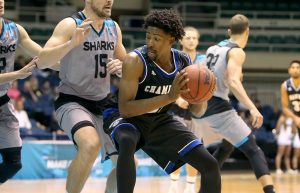
Practice is difficult but playing against your rival is the fun part.
After receiving multiple text messages from your friend in the class asking where you are, you finally make it, and only 3 minutes late. The old granola bar in the bottom of your bag seems like a gift from god as your stomach growls at you for not eating enough. Flash forward and it’s 5:15 p.m. You’re finally back in your room with a growling stomach, but your classes are done for the day. Still in your smelly practice clothes, you finally get to shower and sit down for a second. That’s when you are reminded that you have a film session at 6:30 p.m. Back in the locker room, it feels like you never left.
An hour later and it’s time to head back home. If you’re lucky enough to have nothing to do after dinner and homework, maybe you could get some extra sleep or maybe fit in an episode of your favorite new series.
The NCAA allows only 20 hours of practice a week, but that doesn’t include individual training sessions, weightlifting sessions, visiting coaches and trainers, traveling and games. That doesn’t even count study hall every other week and trying to catch up on classes that you’ve missed. Imagine registering for a class that is already challenging for regular students, now add in numerous absences that inevitably happen. The men’s and women’s basketball team embarked on a 10-day roadtrip through California and Utah from Jan. 26-Feb. 5. That was seven days of missed classes.
You become your own professor and end up teaching yourself the material you missed in a hotel room or on the 6-hour flight to California. Now you need to decide if midnight is too late to stay up finishing work before game day against your rival school. If you don’t stay on top of everything, if you don’t stay in contact with your professors, if you aren’t willing to do everything you need to, you will fail. Athletes have to maintain a 2.0 GPA to stay eligible in the sport you love. Ineligibility will also risk losing that scholarship that is getting you through school.
The pressure of being a student-athlete is greater than anyone could ever imagine, and yes it is definitely not for everybody. It takes dedication, hard work and complete commitment to both your classes and your team. You ask, “Why do it if it is so hard?” Yes, it’s great having college paid for, but the accomplishment and pride that overwhelms your mind as you step out onto the court with your team, representing your school and yourself, is a feeling that could not be possible in any other experience. Being a collegiate athlete is challenging by any means, but for me and every other athlete who has worked their whole life to be in this position, it is well worth it.
